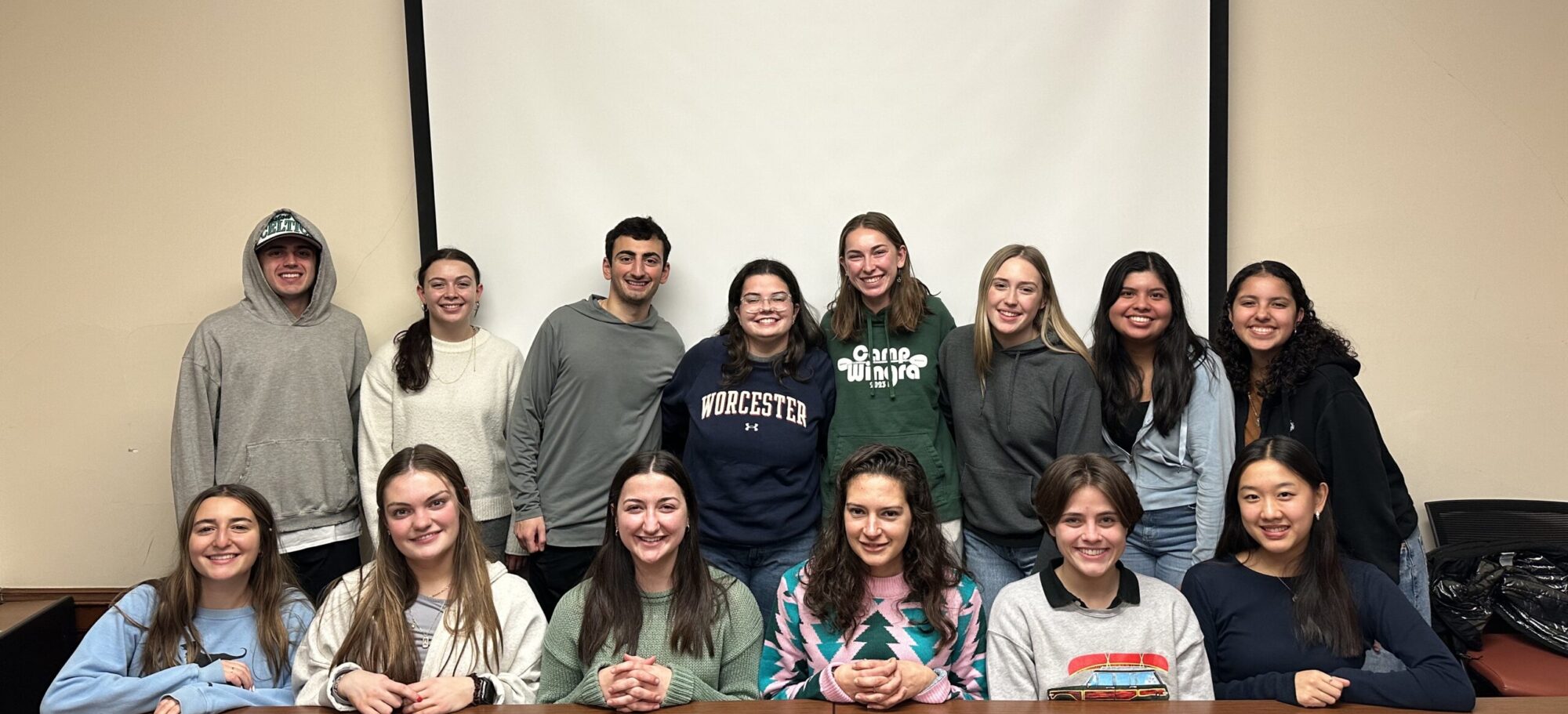What motivated you to apply for a Marshall Grant?
I was motivated to apply for the Marshall Grant after interning over the summer with AIDS Project Worcester (APW) through the Mellon Summer Research Program. Over the summer I was involved with their Prevention Department, working with their Syringe Service Program, a public health initiative to provide clean syringes and discussions regarding risk behavior to intravenous drug users in order to cut down on viral transmission, particularly HIV and Hepatitis C transmission. In my sociology seminar, “Food, Poverty, and Justice,” Professor Crist highlighted the Marshall Grant and how it could be applied to food justice initiatives. I immediately thought of APW’s food pantry, which I help distribute food at as part of the CBL component of my sociology seminar. It provides food three times a month for clients living with HIV. In line with hopes to grow the food pantry from APW staff, I decided to apply for the grant to expand the pantry to provide food for Prevention clients, whom are usually intravenous drug users and/or homeless. Seeing that they have censored the reality that many Prevention clients are intravenous drug users for previous outside grants, I wanted to use an honest and analytical discourse to discuss the social determinants that lead people to use drugs, dispelling the stigma that intravenous drug users “do it to themselves” and “don’t deserve funded programs.” This belief, unfortunately, is held by some funding programs, which has prevented APW from getting awarded funds in the past.
How was the application process? Was it challenging to get the materials together?
Once I had the idea and had discussed my plans with APW, the application materials came together very quickly. Honestly, the application helped me solidify my reasoning for applying and helped me work out some foreseeable obstacles to successfully completing the project.
What have the funds been able to do for AIDS Project Worcester so far?
So far, half of the funds have been able to expand the Prevention Department’s area of the food pantry. Right now, we are creating rapport with clients that high-calorie snack foods (that are able to be eaten without cookware or utensils) are attainable at APW if clients come in for services and are not HIV+ clients of the agency. Previously, only HIV+ clients were able to access food. The second half of the funds will likely be distributed to the same prevention clients with a small survey assessing their level of food insecurity. This data can be used for future grant proposals by APW, helping them to support their mission in addressing food insecurity for any client that walks through the door, even if they engage in highly stigmatized risk behaviors.
How has applying for the grant and implementing the project deepened your knowledge of course content and engagement at the site?
This grant proposal and award process has definitely increased my awareness of the obstacles of creating programs that address food security in highly stigmatized and marginalized populations. It also directly connects to my final research paper topic regarding the use of food as prescription in wholesome treatment plans for both communicable and non-communicable diseases. Essentially, supporting programs that uphold the belief that food is directly tied to your health and ability to battle diseases, such as AIDS and Hepatitis C, we can support the belief that access to food is a fundamental human right, and should be treated as such.
*CBL Intern, Kara Cuzzone ’19 virtually interviewed Caitlin.


